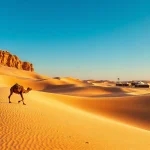Camping in the remote areas of the UK offers a unique opportunity to connect with nature, escape the urban hustle, and immerse yourself in the wilderness. However, it also comes with its own set of challenges and risks. One of the most vital aspects of preparing for a remote camping trip is ensuring you have the necessary first aid skills to handle emergencies that may arise.
In this article, we will explore the essential first aid skills you need for camping in remote UK areas, focusing on practical knowledge and actionable steps to keep you and your fellow campers safe. Whether you are a novice camper or a seasoned outdoor enthusiast, these skills are crucial for a successful and enjoyable wilderness adventure.
Topic to read : How to set up an eco-friendly campsite along the UK’s national trails?
The Importance of a Well-Stocked First Aid Kit
When embarking on a camping trip, especially in remote areas, a well-stocked first aid kit is as essential as your sleeping bag. Having the right supplies can make a significant difference in handling injuries and emergencies effectively.
Contents of an Essential First Aid Kit
Your first aid kit should include a range of items to address various medical situations. These items should be carefully chosen to match the specific conditions and risks associated with remote camping. A comprehensive first aid kit for wild camping should contain:
Also to read : How to identify and avoid dangerous wildlife while camping in the UK?
- Adhesive bandages and sterile gauze pads for minor cuts and abrasions.
- Antiseptic wipes and hand sanitizer to clean wounds and prevent infections.
- Medical adhesive tape and elastic bandages to secure dressings and support sprains.
- Pain relief medication such as ibuprofen or acetaminophen.
- Tweezers and a magnifying glass for removing splinters or ticks.
- Scissors, preferably blunt-tipped, for cutting tape or gauze.
- Hydrocortisone cream for insect bites and rashes.
- Antihistamines for allergic reactions.
- Emergency blanket or bivvy bag for warmth.
- A small CPR face shield or mask.
- Triangular bandages for slings or large wound dressings.
- Digital thermometer to monitor body temperature.
- Splints for stabilizing fractures.
- Sterile saline solution for eye wash or wound irrigation.
Remember, the best first aid kit is one you know how to use. Familiarize yourself with all the items and ensure they are in good condition before your trip.
Customizing Your Kit: Consider Your Environment
While the above list covers general necessities, consider customizing your kit based on the specific environment and activities you will be engaging in. For instance, if you are heading into an area known for its dense woodlands, adding extra supplies for insect bites and tick removal can be prudent. Similarly, if water sources are scarce, including a water purification method like tablets or a filtration system is essential.
Training and Knowledge: The Foundation of First Aid
Having a well-stocked first aid kit is only half the battle. Knowing how to use the contents effectively is crucial. First aid training provides the knowledge and confidence to handle emergencies in remote areas.
The Basic First Aid Skills You Need
Some key first aid skills for campers include:
- CPR (Cardiopulmonary Resuscitation): Essential for reviving someone who is unconscious and not breathing.
- Wound Care: Proper techniques to clean, disinfect, and bandage wounds to prevent infection.
- Fracture Management: How to immobilize broken bones using splints and bandages.
- Burn Treatment: Cooling burns immediately and applying appropriate dressings to prevent further damage.
- Allergic Reactions: Recognizing and treating allergic reactions, including the use of an EpiPen.
- Hypothermia and Hyperthermia Management: Recognizing symptoms and providing appropriate care.
Wilderness First Aid Training
Consider taking a wilderness first aid course. These courses are designed to cover medical situations unique to remote and outdoor settings. They often include practical scenarios and hands-on training, which are invaluable when you’re miles away from professional medical help. Paul Kirtley, a renowned wilderness survival expert, offers extensive training that could be highly beneficial for those venturing into the wild.
Water Safety: Preventing and Treating Dehydration
Access to clean water is a fundamental need during any camping trip. However, remote areas often present challenges in finding potable water sources.
Ensuring Safe Drinking Water
To avoid dehydration and related health issues, you need to ensure you’re consuming safe water. Here are some methods to purify water:
- Boiling: One of the most reliable methods to kill pathogens. Boil water for at least one minute.
- Filtration Systems: Portable water filters can remove bacteria, protozoa, and sometimes viruses.
- Purification Tablets: Chemical tablets (e.g., iodine or chlorine) can disinfect water, making it safe to drink.
- UV Light Purifiers: These devices use ultraviolet light to neutralize bacteria and viruses.
Signs and Treatment of Dehydration
Dehydration can be a serious condition if not treated promptly. Early signs include dry mouth, dizziness, and dark urine. In severe cases, it can lead to confusion, rapid heartbeat, and even unconsciousness.
To treat dehydration, gradually rehydrate with clean water and electrolyte solutions. Avoid sugary drinks as they can worsen dehydration. In cases of severe dehydration, seek medical help immediately.
First Aid for Common Wilderness Injuries
While camping, especially in remote areas, you might encounter various injuries. Being equipped to handle these can save lives and ensure a smoother camping trip.
Managing Cuts and Scrapes
Cuts and scrapes are common while hiking or setting up camp. Clean the wound with sterile saline solution or clean water. Apply an antiseptic, then cover with a sterile bandage. Change the dressing regularly and monitor for signs of infection.
Handling Sprains and Strains
Sprains and strains can occur from uneven terrain or overexertion. Follow the RICE method: Rest, Ice, Compression, and Elevation. Use an elastic bandage for compression and apply ice to reduce swelling. Rest the injured area and elevate it to decrease blood flow and swelling.
Treating Burns
Burns can result from campfires or cooking equipment. Cool the burn with cold, clean water (not ice) for at least 10 minutes. Cover with a sterile, non-stick dressing. Avoid applying creams or ointments unless prescribed.
Insect Bites and Stings
Insect bites and stings can be more than just a nuisance. Clean the area with antiseptic and apply hydrocortisone cream to reduce itching and swelling. For severe allergic reactions, administer an antihistamine or use an EpiPen if available.
Leave No Trace: Protecting Yourself and the Environment
Practicing Leave No Trace principles is not just about preserving the environment but also about ensuring your safety and the safety of others.
Principles of Leave No Trace
- Plan Ahead and Prepare: Know the regulations and special concerns for the area you’ll visit. Prepare for extreme weather, hazards, and emergencies.
- Travel and Camp on Durable Surfaces: Stick to established trails and campsites to minimize damage to the environment.
- Dispose of Waste Properly: Pack out all trash and leftover food. Bury human waste at least 200 feet from water sources.
- Leave What You Find: Preserve the past. Leave rocks, plants, and other natural objects as you find them.
- Minimize Campfire Impact: Use a lightweight stove for cooking and enjoy a candle lantern for light. Where fires are permitted, use established fire rings.
- Respect Wildlife: Observe wildlife from a distance. Do not follow or approach them.
- Be Considerate of Other Visitors: Respect other visitors and protect the quality of their experience.
Safety Through Environmental Responsibility
Practicing Leave No Trace not only protects the environment but also reduces your exposure to potential hazards. By staying on designated paths, you avoid dangerous terrain and minimize the risk of injuries. Proper waste disposal prevents attracting wildlife to your camp, reducing the likelihood of dangerous encounters.
Camping in the remote areas of the UK is a rewarding experience that offers adventure and tranquility. However, it also requires a high level of preparedness and knowledge. Essential first aid skills are critical for handling emergencies and ensuring a safe trip. By equipping yourself with a well-stocked first aid kit, gaining proper training, ensuring water safety, knowing how to treat common injuries, and respecting Leave No Trace principles, you will be well-prepared for the challenges of wilderness camping.
Remember, the wilderness is unforgiving to the unprepared. By continuously expanding your knowledge and skills, you can enjoy your outdoor adventures with confidence and security. Stay safe, and happy camping!











